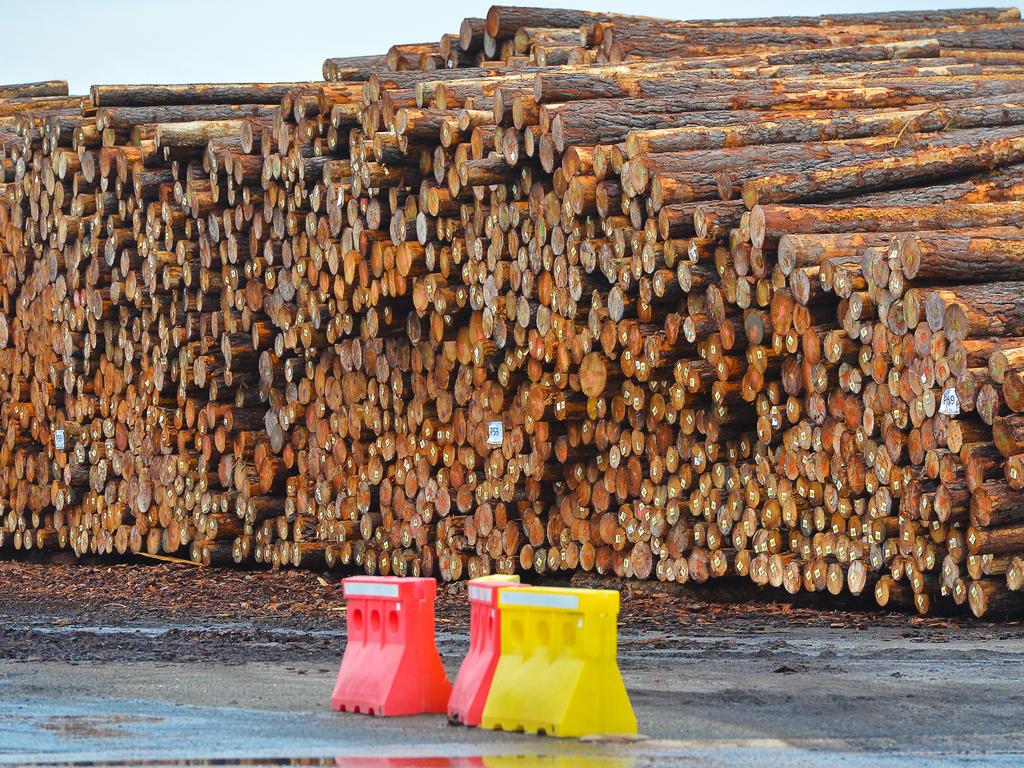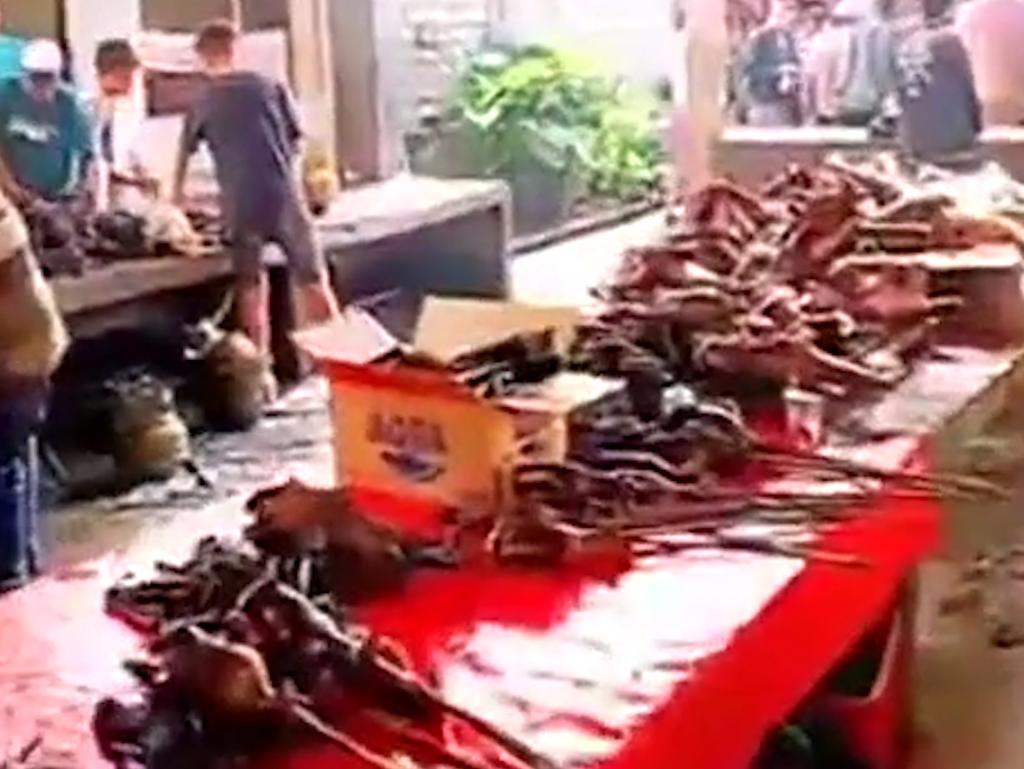China cracks down on more Australian exports
China has escalated its trade war with Australia, banning yet another Aussie product, with potentially devastating consequences.

China has continued its attack on Australian exports, with its ban on timber now including products from Tasmania and South Australia.
A notice from China’s custom officials claimed pests had been detected in shipments of timber logs from the two Australian states.
“Recently, the customs of Shanghai, Ningbo, Xiamen, and Qingdao intercepted live forest pests from imported logs from Tasmania and South Australia,” the notice said.
“The relevant situation has been notified to the Australian authorities.”
As a result, the country has banned any shipments that were sent from these states from December 3 in a bid to “prevent the pests entering China and to protect our country’s forestry and ecological safety”.
RELATED: China accuses Australia of hypocrisy

RELATED: ‘Heavy price’: China’s Aussie ban backfires
This is the latest in a series of trade attacks from the China, with the federal government revealing it is “increasingly concerned” by the sanctions.
Earlier bans were also placed on timber exports from Queensland and Victoria.
Australian lamb has also been added to the list of sanctioned products, along with barley and beef.
China blocked imports from JBS Brooklyn and Australian Lamb Company, which were both briefly shut down due to COVID-19 outbreaks.
However, the country had continued to accept shipments from US companies that have also experienced coronavirus outbreaks.
Trade Minister Simon Birmingham told parliament the government had raised the concerns directly with Beijing and left open the option of taking a complaint to the World Trade Organisation.
“These disruptions have increased significantly in recent months,” he said.
“The targeted nature of Chinese government (sanctions) on Australian goods raises concerns about China’s adherence to the letter and spirit of both its ChaFTA (China-Australia Free Trade Agreement) and WTO obligations.
“We continue to raise issues of apparent potential discriminatory actions targeted against Australia. The Australian government is considering old dispute settlement options in order to support our exporters and ensure they can compete on fair terms.”
The latest ban on Australian produce comes just days after Chinese authorities made a stunning claim that COVID-19 may have arrived in Wuhan from Australian frozen steak.
An article in the Global Ti mes over the weekend argued that Western countries had attempted to “shift the narrative from their own shortcomings” by accusing Wuhan of being “where the coronavirus began”.
“As the mounting sporadic outbreaks in China were found to be related to imported cold-chain products, with other parts of the world, including Europe and the American continent, reportedly discovering signs of the coronavirus earlier than Wuhan, it begs a new hypothesis – did the early outbreak in Wuhan originate from imported frozen food?” the publication wrote.
The first coronavirus cases appeared in Wuhan, the capital of China’s Hubei province, in December.
The cases were initially linked to one of the city’s controversial “wet markets”, with experts later saying the virus had likely jumped from wild animals to humans.
RELATED: China’s latest insult to Australia

Despite it being widely accepted that this is where the virus originated from, Chinese officials have recently been pushing new theories of how the outbreak occurred, with frozen imported food being one of the suggestions.
The Global Times article claimed the Wuhan market used to sell “imported cold-chain seafood, such as king crab and arctic shellfish, as well as meat products from Brazil and Germany”.
“The city also imported Australian steak, Chilean cherries and Ecuadorean seafood before 2019, according to the information from the website of the city’s commerce bureau.”
The article said customs data showed there had been a 174 per cent increase in frozen product imports into Hubei province in 2019 compared with the previous year.
“The idea never crossed our minds before, but now it seems plausible that the virus may have been imported to Wuhan via imported cold-chain products,” Wuhan University disease researcher Yang Zhanqiu told the publication.
China is still pushing these claims despite the World Health Organisation has previously saying there is no evidence of the virus being transmitted this way.




